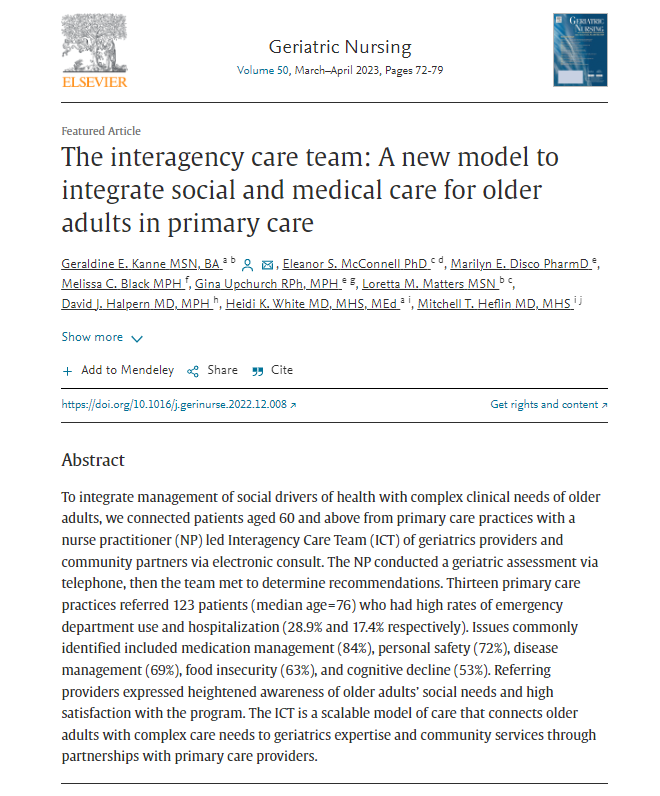Headline
Primary care integration to address health-related social needs for older adults strengthens partnerships between geriatric providers and community-based organizations.
Context
Addressing the social needs of older adults is critical for successful aging. Community-based organizations (CBOs) are well-positioned to partner with primary care practices to address health-related social needs, yet these practices have not consistently integrated social drivers of health into the management of chronic health conditions. This study examines the impact of the Interagency Care Team, a new model of care that aims to improve primary care integration to better address health-related social needs for older adults. To facilitate connections to community services, this model uses nurse practitioners who lead consultations with patients of primary care practices who have been identified as having geriatric medical needs and social needs impacting their health.
Findings
The authors examined demographic data, the types of health and social needs that were addressed, and satisfaction of primary care teams and referring providers. Overall, the model successfully connected patients with high health care utilization to community services to better address geriatric medical and health-related social needs. These needs included medication and disease management, and social drivers of health, including personal safety issues, food insecurity, insurance coverage concerns, and depression/social isolation. Primary care teams and referring providers reported satisfaction with the model.
Takeaways
This new model shows the feasibility of creating partnerships between geriatric providers from an academic medical center and CBOs. There are also implications for this model as telehealth expands and the shift to value-based care continues. Policymakers can seek opportunities to support similar primary care-based models to better meet the needs of growing population of older adults in the US.

